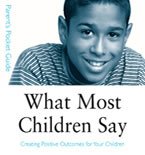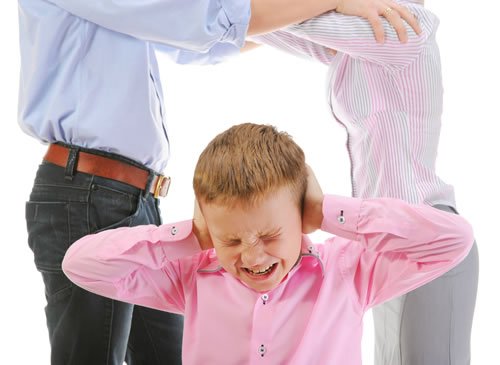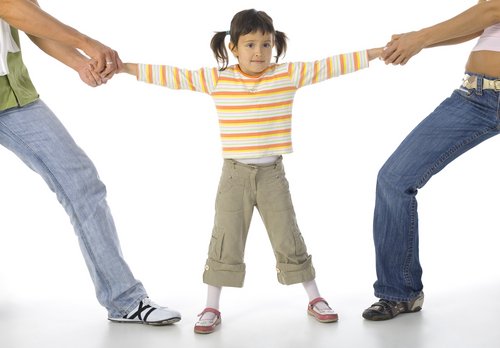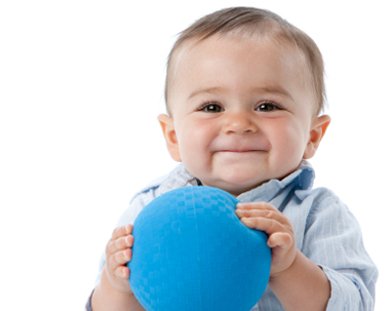A Childs Voice in Mediation & What Most Children Say
What Do Children Go Through When Parents Separate or Divorce?
Whether we, as parents, intend it to happen or not, through no fault of their own our children can get caught up in a family dispute that has been brought about by a Divorce or Separation. The information that can be found on this page is aimed at helping parents understand the emotions and feelings that children can be going through. Many children will try to cover up their feelings if they want to avoid upsetting, or hurting their parents. This can be very damaging to them and it is something that can be avoided by parents taking time to understand what their children are going through and to speak to the children about how they feel about things. Children can feel like they are caught in the middle when their parents separate. Attending Family Mediation after a family break up or parent separation can be very helpful to children, as it helps parents to focus on the children’s needs and puts children at the forefront of the mediation process. Children can be invited into the family mediation process which can be beneficial in getting the parents to listen to what the child wants after his or her parents separate or divorce.
Kent Family Mediation are proud of our ‘What Most Children Say’ books
 These handy, pocket sized Parents Guides have proven to be very popular, with over 30,000 of these already having been sold in the UK and Brazil.
These handy, pocket sized Parents Guides have proven to be very popular, with over 30,000 of these already having been sold in the UK and Brazil.
Many of these have been translated into Spanish, with plans already in place to translate them into other languages, in order that they can then be sold to parents and organisations with the aim of helping parents, children and their extended families all around the world!
The Effects of Divorce and Separation on Children
Divorce and parental separation can have an adverse effect on children’s adjustment and future life chances. This need not be the case if parents consider the messages from children that are contained within the Parents Pocket Guide, ‘What Most Children Say’.
To order this booklet online, please click here to submit your information
Giving Your Child a Voice in Mediation
Why Involve The Children in Divorce & Separation
 Separation and divorce is one of the most stressful experiences a family may face. Sadly, it can have a lasting impact on the health and welfare of parents and children, as well as the extended families and friends.
Separation and divorce is one of the most stressful experiences a family may face. Sadly, it can have a lasting impact on the health and welfare of parents and children, as well as the extended families and friends.
It is not unusual for children to feel isolated and alienated when their parents first separate. Children can be very resilient to change providing the change is introduced correctly by both parents, the child feels like he or she is being listened to and that the child’s feelings are taken into consideration.
It is common for children to feel the need to protect, or align with a particular parent, because children are able to sense the deep distress and hurt that each parent is feeling.
The new and ever changing emotions that a person goes through when they experience a relationship breakdown, family separation, or divorce is hard to come to terms with and children find emotions particularly difficult to cope with. A child’s divided loyalties can result in overwhelming confusion, anxiety and sadness, as well as anger and despair. A child’s behaviour can change as a result of his or her parents separating. Some children may become withdrawn or clingy, while other children may become very emotional and their behaviour may at times be very challenging. This can lead to problems at school, challenging behaviour at home, bed wetting, playing up to the other parent, being disrespectful to parents new partners, or the child may not want to spend time playing with their friends or doing things that they would normally enjoy doing.
Child Inclusive Mediation: Bringing Children into the Mediation Process & Giving Children ‘A Voice’

Are The Children Fine After a Family Breakup
How Does Child Inclusive Mediation Work?
Will My Child Be Able To Choose Where They Live, Or Which Parent They Live With?
What Do The Children Think About Speaking To A Family Mediator?

Other Useful Information To Assist Separated or Divorced Parents
Research Articles Which May Assist Parents After Separation or Divorce
The research articles are listed numerically in the same way as the Pocket Guide. Some of the articles are available via links. Those that are not are detailed below.
 Implications for Practice Butler, I G; Scanlan, Lesley; Robinson, Margaret; Douglas, G; Murch M
Implications for Practice Butler, I G; Scanlan, Lesley; Robinson, Margaret; Douglas, G; Murch M
Publisher: John Wiley & Sons, Date of Publication 2002
The paper reports findings from a research study that explored children’s experience of divorce. It shows that children experience divorce as a crisis in their lives but that they are able to mobilise internal and external resources to regain a new point of balance. In doing so, children demonstrate the degree to which they are active and competent participants in the process of family dissolution. The implications of the data are then considered in relation to engaging with children involved in divorce and in relation to some of the cultural presumptions that might militate against hearing what they have to say about their experiences.
Current Research on Children’s Post Divorce Adjustment: No Simple Answers Family Court Review, Volume 31, Issue 1, Page 29 – January 1993
Author : J. B Kelly
This article reviews the current research on the effects of marital conflict, parent adjustment, custody and access on children following divorce. Evidence from research demonstrates that significantly more adjustment problems confront children, especially boys, of divorced parents compared to those in never-divorced families. However, when assessed in years following the divorce, these children are functioning in normal limits and do not appear ‘disturbed’, although the media report the opposite. The article discusses an important British study finding that marital conflict and not the divorce affect children and that divorce may mitigate some of the more destructive effects. The analysis of research dealing with joint custody brings together both current and on-going studies. A surprising finding in one study was that mothers who share custody are more satisfied than those having sole custody and whose children see their father periodically. However, both groups expressed more satisfaction with their residential arrangement than did sole-custody mothers whose children had no paternal contact. court-ordered joint custody was less satisfactory than when the parents voluntarily agreed to that arrangement, and spouses reporting high levels of marital conflict tended to do less well in joint custody arrangements than did families with less conflict.
Family Court Review Volume 39 A Rejoinder to Solomon and Biringen
Michael E Lamb and J. B Kelly
Most infants form attachments to both of their parent at roughly the same age. These relationships are consolidated by continued interactions, ideally in a broad array of contexts, whether or not the parents live together. The mechanisms underlying the formation and consolidation of relationships with both parents appear to be similar, although most infants establish preferential relationship with the persons who take major responsibility for their care. When parents separate, children often experience distress, and their adjustment is adversely affected when the relationship with one of their parents is severed. This can be avoided by developing parenting plans that continue to ensure that children have regular interaction with both parents in a broad array of contexts. Overnight periods provide opportunities for many important interactions.
Yvette Walczak with Sheila Burns (Divorce: The child’s Point of View; Harper & Row, 1984)

Children are impressionable and their fear and confusion at the time of divorce perhaps makes them more so. Parents are therefore in a powerful position to influence their children’s thinking and their understanding of a confusing situation – whether they intend to do so or not – and of tipping the balance in their own favour when trying to explain what has happened and why.
Parents are parents, married or divorced; it is the child’s right to have and to hold on to and continue to share in their lives fully. Our findings do not support the view that children want to sever the relationship with the loving parent following separation or divorce.
It is also clear that a child’s ‘natural’ view of divorce can be changed by fear and insecurity, or by persuasion, or even indoctrination by one parent, and can thereby for a time at least appear to have resolved the balancing position by opting for one side against the other – with such regret and remorse later on that the cost seems too high.
Satisfaction was linked to the quality of the relationship with the part-time parent as well as access arrangements and there was a strong connection between the two. It is difficult to love and feel loved by a parent with whom contact is infrequent or non-existent. Frequent contact on the other hand makes it possible for parent and child to know each other, to give support and tangible proof of love.
It was the children who knew that both parents wanted and approved of access who remembered enjoying their meetings with the absent parent best.
Wallerstein and Kelly (1980) found that the happiest and best adjusted children were those who had frequent, regular and flexible contact with the non-custodial parent and could exercise some degree of control over visiting arrangements … it was the continuity of relationship with both parents that was of the utmost importance in helping children cope with divorce and recover from its initial impact.
By making joint custody orders the rule … the law would give the right kind of message to parents and encourage, rather than discourage, as it does at present, sensible behaviour. Only the principle of joint custody can emphasise the continuity of parenting and the child’s right to have two parents.
Janet Walker.
Research shows that, after divorce, children do best when they retain a constructive relationship with both parents. Hence, mediation services and recent reforms in Family Law seek to encourage parents to co-operate fully and amicably, and to share parent responsibility for the care and well-being of their children. There is danger that a vision of ‘happy-ever-after’ post-divorce families ignores the complexity of transitions facing separating families, and the emotional, social and economic stresses which parents experience for many years.
Drawing on years of research with divorcing families, this paper invites practitioners to consider whether too much is expected of divorced parents, and whether existing services for separating families adequately address the needs of different family members.
Richard A Warshak.
In attempting to fashion developmentally sensitive residential schedules, some courts, with the endorsement of mental health professionals, routinely deprive infants and toddlers of overnights with their fathers. This article analyses the contributions, misuses, and limitations of theory and research relevant to such restrictions and discusses their scientific status with respect to current knowledge about child development.
Interjecting Data into the Debate about Overnights Marsha Kline Pruett, Rachel Ebling and Glendessa Insabella.
The debate about the benefits and drawbacks of overnight schedules for young children is hotly contested in family law. This study investigated connections between occurrence of overnights, schedule consistency, number of caregivers, and young children’s adjustment to parental separation and divorce. Families (N = 161) with children aged 6 years or younger were recruited at the time of filing for divorce or child custody (if unmarried); follow-up data was obtained from 132 families 15 to 18 months later. Results indicated that parenting plan variables are related to children’s social, cognitive and emotional behaviour with caregivers and schedule consistency more salient than overnights. Girls benefited from overnights and more caregivers, whereas boys did not. Overnight children aged 4 to 6 years when their parents filed manifested fewer problems 1.5 years later than did younger children. Even when controlling for parental conflict and parent-child relationship variables, the constellation of parenting plan variables contributed to young children’s adaptation.




